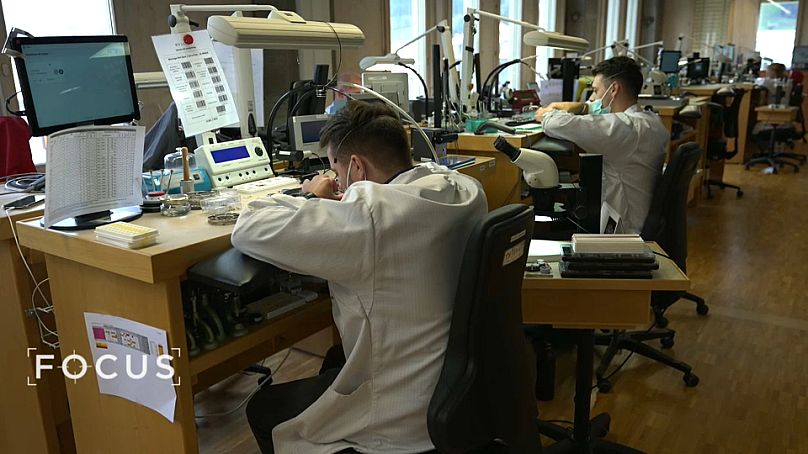Which small masterpieces will win at the Grand Prix d'Horlogerie in Geneva? We take a look at some of 2021's finalist watches and at the watchmaking world of art and technology.
The Grand Prix d'Horlogerie de Genève (the GPHG) is considered the Oscars of the watchmaking industry and it's celebrating its 20th anniversary. To mark the occasion, Geneva's Rath Museum is showing a retrospective of the watches that have won the 'Grand Prix de l'Aiguille d'Or', the most coveted prize on the awards list since 2001. The 84 currently nominated watches will also be presented. The exhibition is open until 14 November.
 ADVERTISEMENT
ADVERTISEMENT
 ADVERTISEMENT
ADVERTISEMENT
Behind each of these watches, there is a world of tradition, art and outstanding technology. Their fabrication often takes years.
Creating a timeless masterpiece
In Le Sentier, a village in the heart of the Swiss region of Jura, is the Bulgari watchmaking workshop. The brand designs, develops and produces in-house all the essential parts of its creations, from the casting of the gold alloys to the machining, crafting, assembling and finishing of the movement, case, dial and bracelet. The different components are then assembled in Neuchatel.
Craftmanship and top technical solutions are brought together from the very start of a new project in order to define fabrication plans. As Julien Behra, the head of watch movement development at Bulgari explains, they create specifications through feasibility studies so they can review "all the difficulties of the project, the deadlines, the costs." The amount of development time needed depends on the complexity of the watch. "There are very simple functions, like the display of moon phases or calendar watches, which can take up to six months to a year, and more complicated functions like the development of a clock chime or a minute repeater which can take up to four to five years, or more", he adds.
At the Van Cleef and Arpels manufacturing site in Meyrin, Switzerland, the creative process unfolds using an approach called the ‘poetry of time’. Beauty and dreams are at the heart of watchmaking work which starts with a story, an emotion that has to be translated visually and mechanically. Rainer Bernard, the head of research and development in the company, says that they consider watches like paintings or operas and technique is always part of that. "Our techniques always help to tell the story," he explains.
As well as the 'Aiguille d'or, the first prize for best watch, 18 other pieces are awarded for specific features in various different categories, like the Men’s, Ladies’, Iconic and Chronograph categories.
The criteria behind the selection
Nick Foulkes, the president of the Grand Prix d'Horlogerie jury, says that they use an interesting process to choose the candidates and this starts with the brands proposing their work. After that, there is a "caucus of 500 or so people who give their opinions." From there, it's up to the final jury of 30 people which is made up of roughly 50% chosen at random and the rest chosen by Foulkes. According to him, this creates "a very fair and different and globally different sense of opinions that will judge on all sorts of criteria."
Innovation in watchmaking
Foulkes believes that brands use the best that contemporary machinery has to offer, "whether it's computer-aided design or milling machines that will accomplish things to tolerances that were impossible to achieve in all but the most expensive watches of even 30 or 40 years ago"
The GPHG awards ceremony is set to take place on the 4th of November at Geneva's Leman Theatre. The clock is ticking for the Jury to decide who will win the "Aiguille d'Or", 2021.











